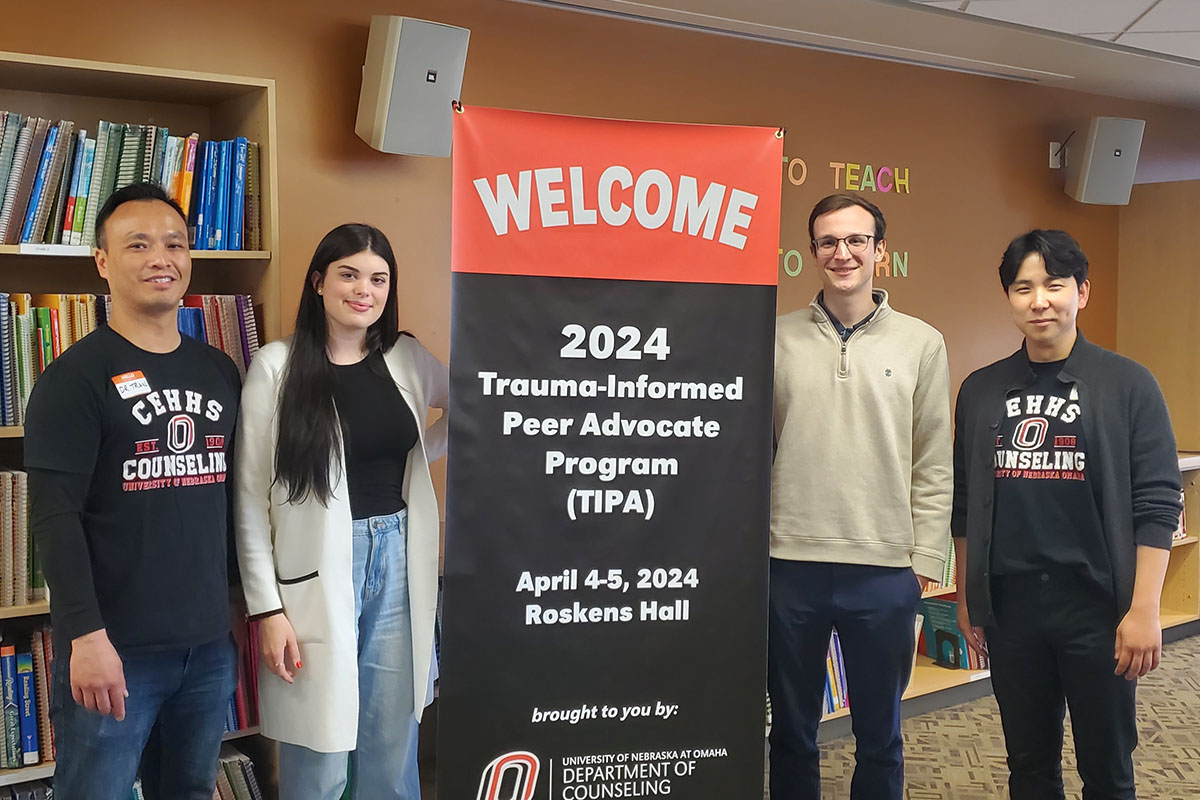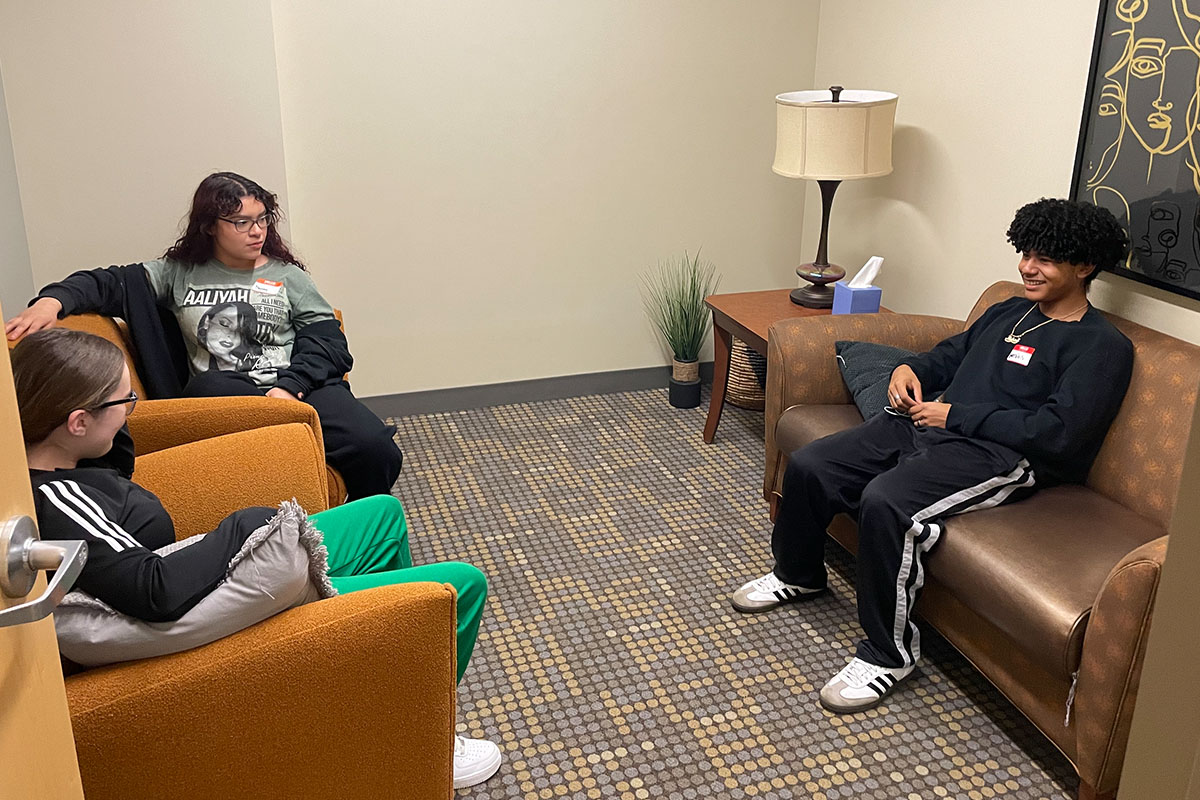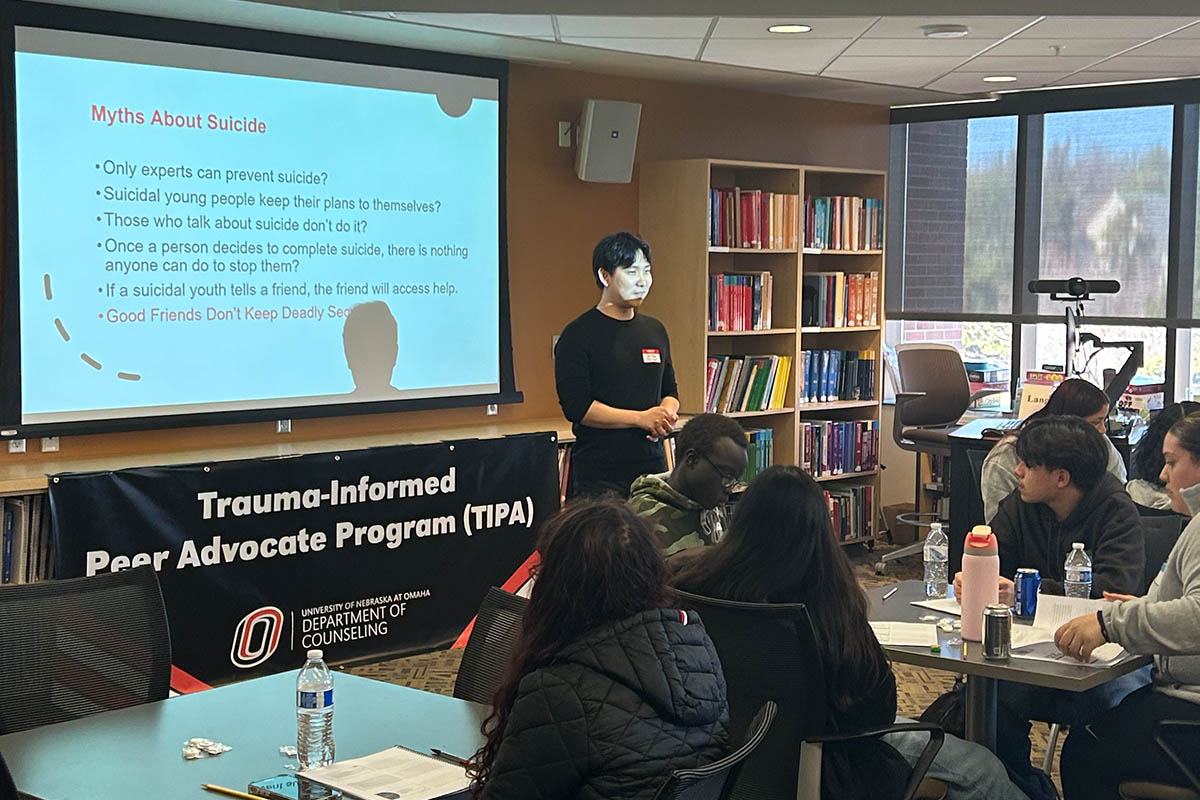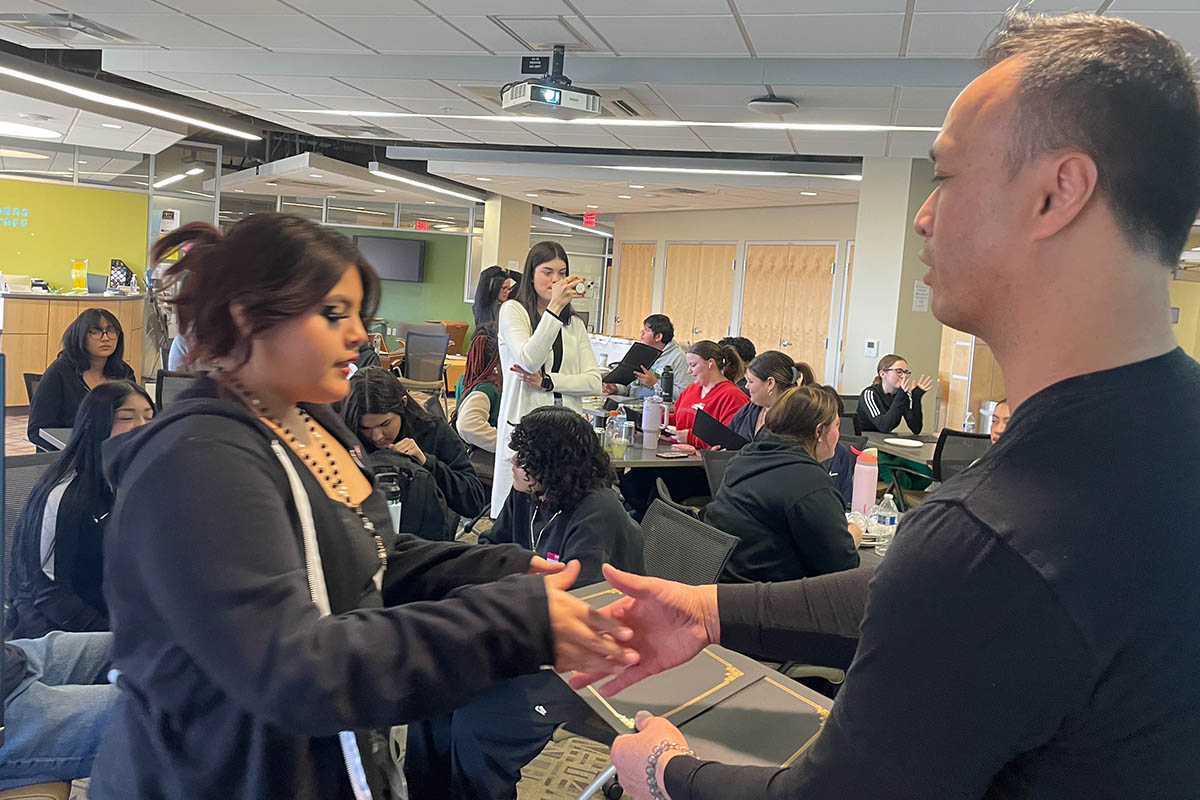Counseling Faculty Launch Trauma-Informed Peer Advocate Program
- contact: College of Education, Health, and Human Sciences
- email: unocehhs@unomaha.edu
This story appeared in the most recent issue of the College of Education, Health, and Human Sciences Annual Report.
In response to the rising mental health needs in K-12 schools, especially following the COVID-19 pandemic, researchers in the Department of Counseling have introduced a groundbreaking Trauma-Informed Peer Advocate (TIPA) program, which was recently piloted with local high school students.
Supported by a grant from UNO’s Office of Research and Creative Activity, this initiative aims to equip high school students with essential counseling, intervention, and advocacy skills. In April, 24 students from Bryan High School participated in the inaugural two-day experience.
"As peer advocates work to serve and build up their peers, they will also be improving school climate and strengthening their communities."
The program, developed by Isak Kim, Ph.D., and Thang Tran, Ph.D., with assistance from graduate students Nate McQueen and Taylor Trainor, trains high schoolers as trauma-informed peer advocates and introduces them to behavioral health careers. The curriculum includes mental health literacy, basic counseling skills, trauma-informed approaches, crisis intervention strategies, and multicultural and social justice advocacy. The TIPA program also emphasizes a crucial referral protocol, training students to recognize situations beyond their capabilities and promptly and confidentially connecting peers with professional school counselors or appropriate mental health resources when necessary. Participants in the April pilot received certificates at a celebratory event marking their completion.
"With half of all mental health disorders beginning by age 14, it’s crucial that we empower students to take an active role in supporting their peers," said Dr. Kim. "Peer support programs provide a foundation for early intervention and promote positive youth development. By training students as trauma-informed peer advocates, we can more effectively address mental health issues in schools and ensure help is available when needed most."
With the increasing prevalence of mental health issues among youth and the limited capacity of school counselors, peer support programs are becoming more important in addressing these needs. Statistics show that two-thirds of children experience at least one traumatic event by the age of 16, and 1 in 5 high school students report being bullied on school property. The American School Counselors Association recommends a ratio of one counselor for every 250 students, but in Nebraska, recent data from 2022 indicates a ratio of one counselor for every 369 students. This gap underscores the importance of peer support models in providing immediate support and connecting students in need with mental health services.
"We are very excited to continue to partner with schools and school districts, but most importantly with students in building and maintaining their resilience while equipping them to enhance the well-being of their peers," said Dr. Tran. "As peer advocates work to serve and build up their peers, they will also be improving school climate and strengthening their communities."
By empowering students to support their classmates, the program aims to foster a supportive school environment, promote positive youth development, and introduce students to behavioral health careers. The TIPA program aligns with recommendations from leading mental health organizations to enhance community-driven mental health resources and peer support.
What participants are saying...
"The most impactful activity was the role playing because it kind of showed what my future might look like."
"I feel like I learned more about my own feelings"
"… the part about needing to take care of ourselves first before we take care of others because I feel like I tend to be a people pleaser and try to focus on others more than myself."
"The most impactful moment for me was talking about suicide and how someone could prevent it. I feel like most symptoms or signs that give that away, most people don’t see."




